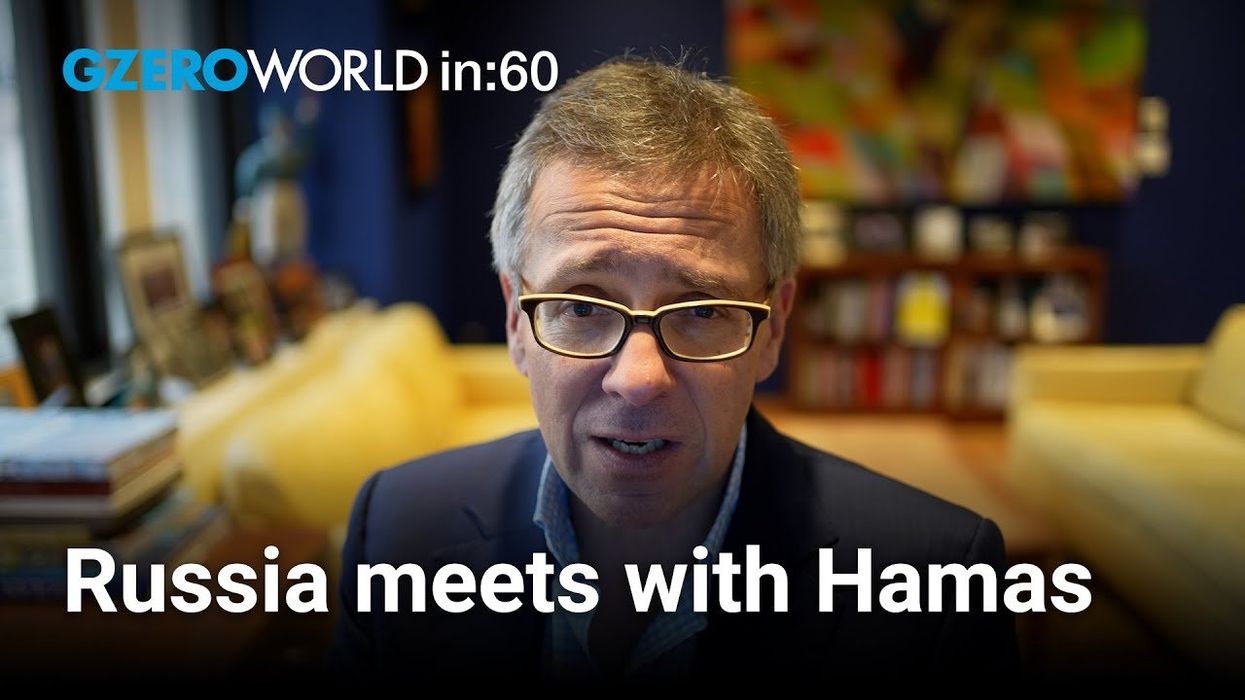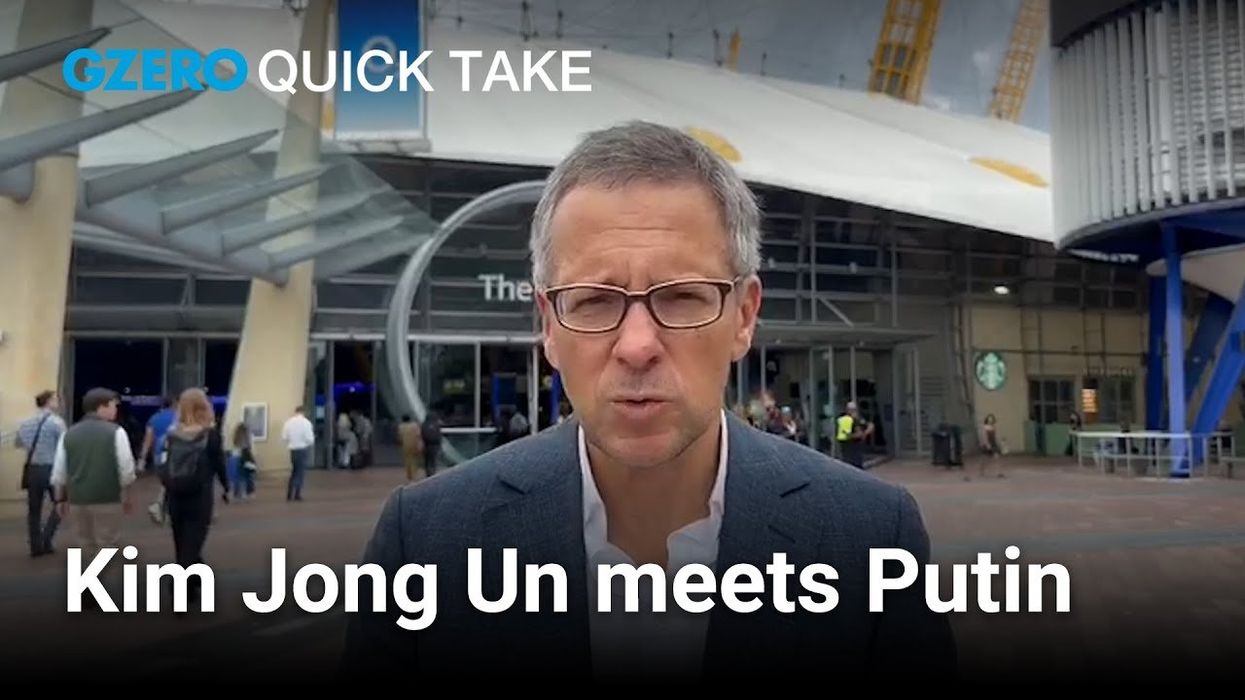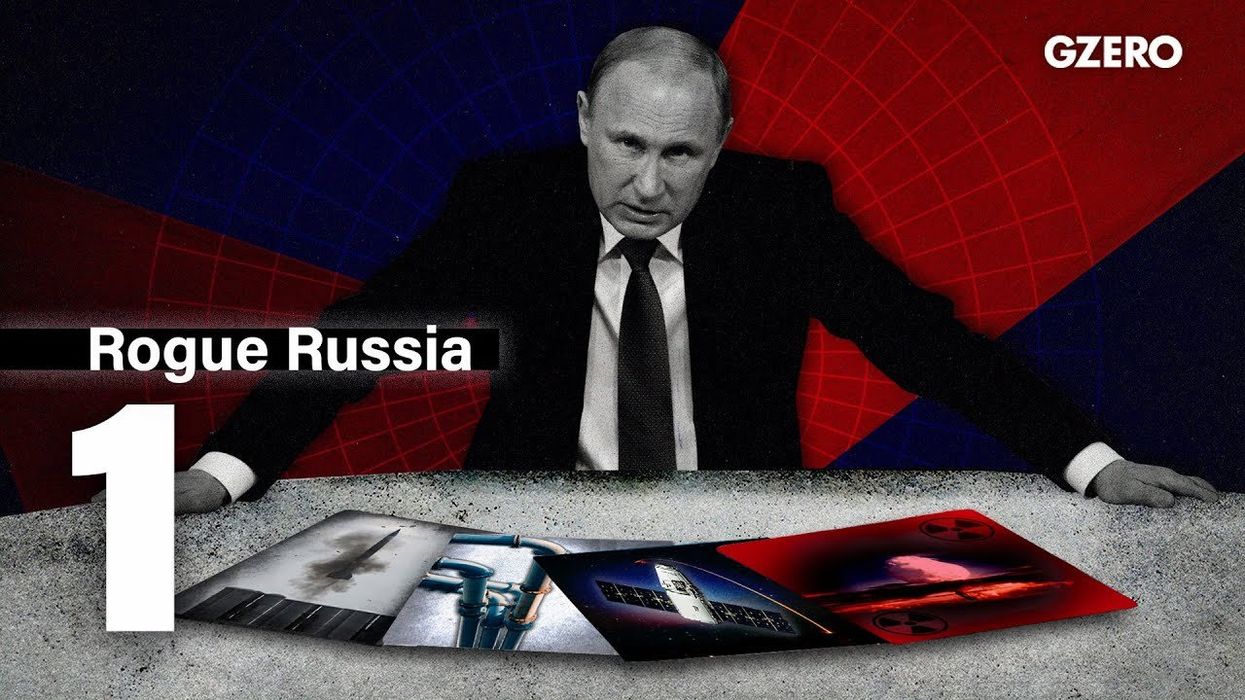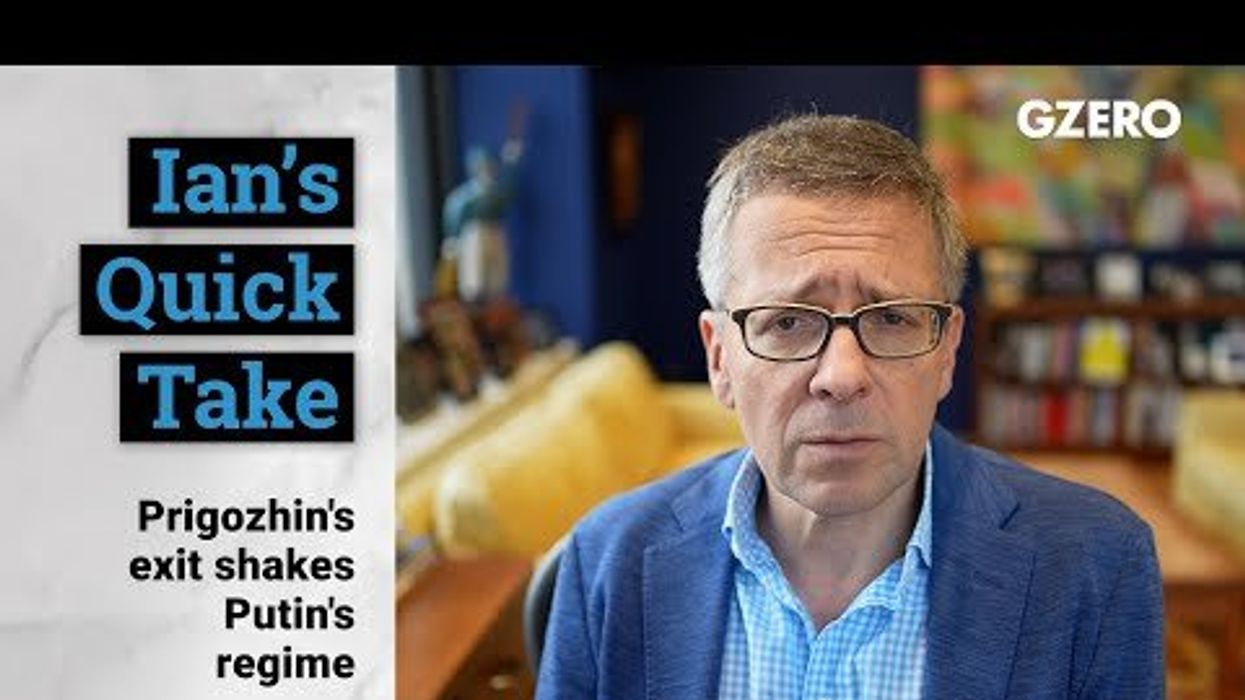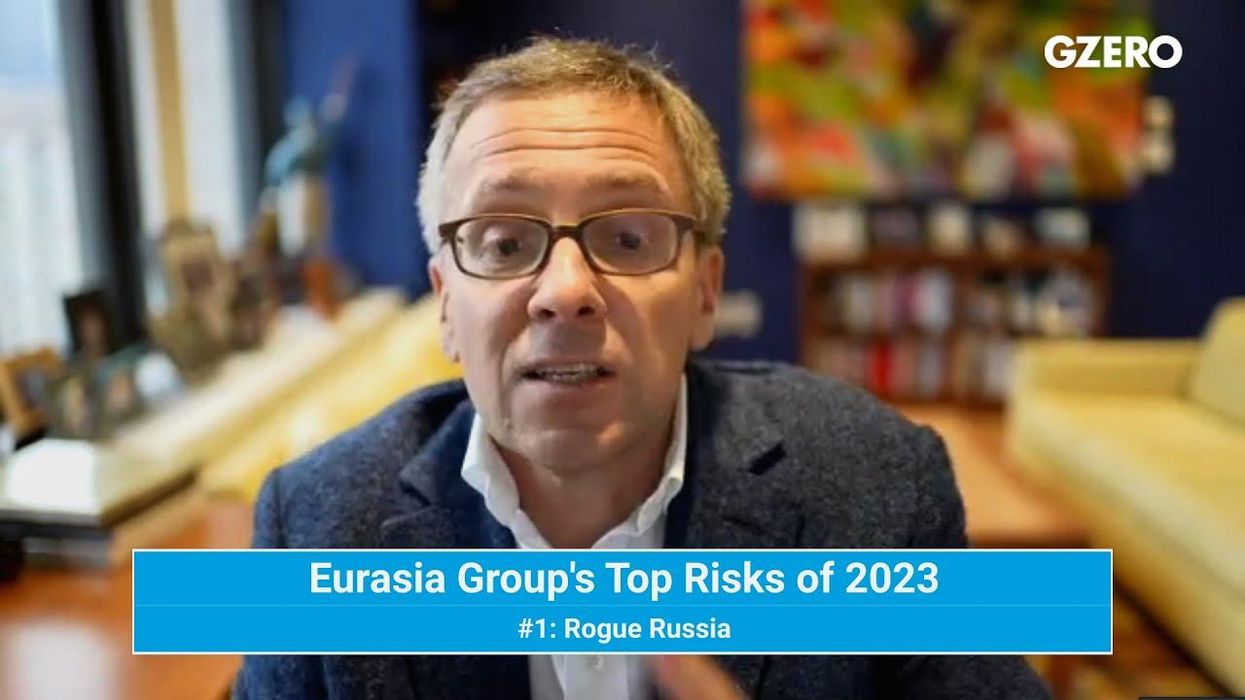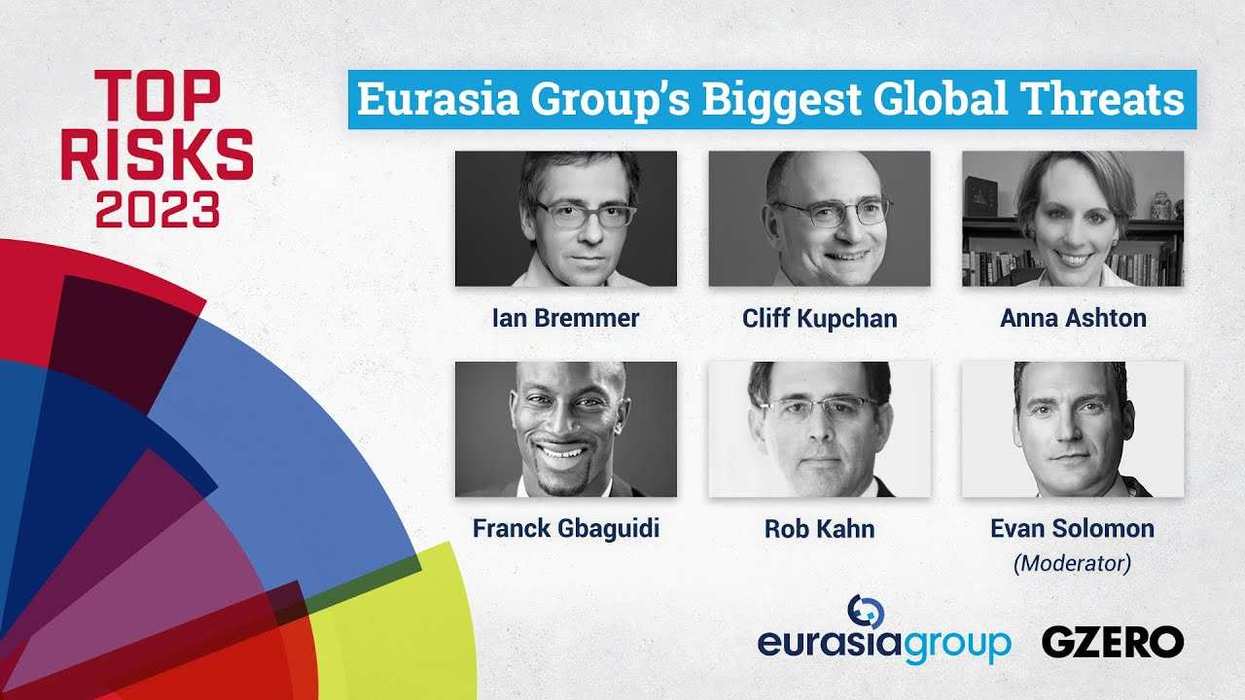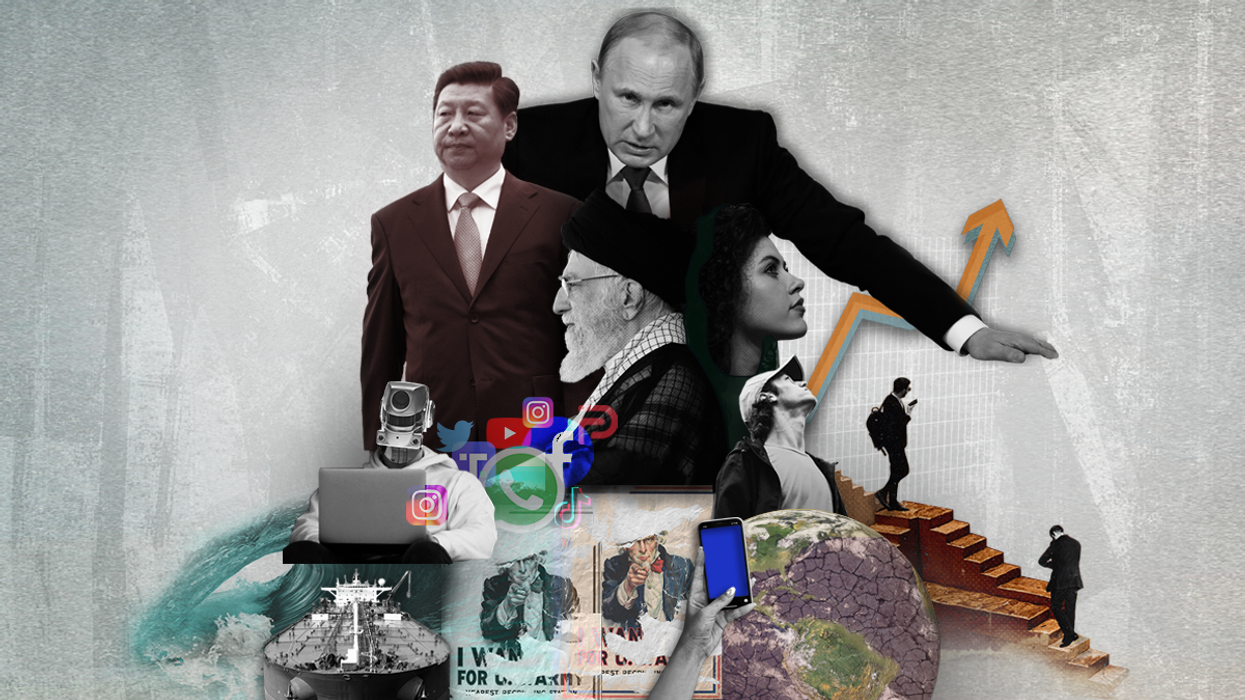ask ian
Russia meets with Hamas in bid to exploit global chaos
Why does Israel's ground invasion of Gaza feel so secretive? Why is Russia meeting with senior Hamas officials? Could Netanyahu be forced to resign during the war? Ian Bremmer shares his insights on global politics this week on World In :60.
Oct 31, 2023
